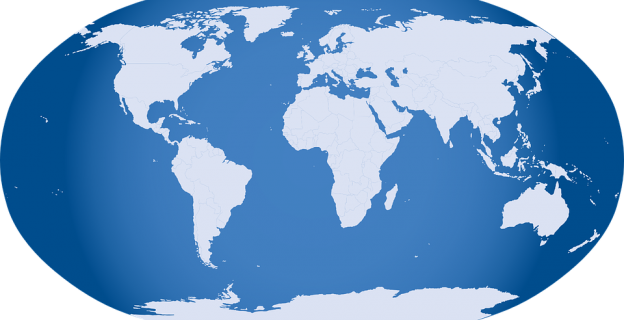SUDAN
The United States on Wednesday condemned the recent attacks on protesters in Sudan. The State Department Spokesperson said the US calls on “Sudan’s Transitional Military Council and the Rapid Support Forces to desist from violence and we call for resumed contact with the Forces for Freedom and Change with the aim of a civilian-led transition that leads to timely elections and free expression of the will of the Sudanese people. We support the African Union (AU) Peace and Security Council’s April 30 communique.”
Senior Department officials currently are engaging with officials in the region in an attempt to encourage restraint and find a peaceful solution to the challenges in Sudan. Washington also welcomed the recent statements from the AU, Egypt, and Saudi Arabia calling for restraint from violence and resumption of dialogue.
GERMANY
Secretary of State Michael R. Pompeo met with German Chancellor Angela Merkel last week to discuss key shared priorities, including supporting Ukraine and countering Russian aggression. The two discussed the Iranian regime’s escalating threats in the region against American interests and the need to counter Iran’s missile activities and regional aggression, according to the State Department Spokesperson. The leaders also discussed the countries’ shared interests around efforts to forge a political settlement that ends the conflict in Afghanistan, while preserving the gains of the last 18 years.
CHINA
The Internet of the future, according to the Secretary of State, must have western values within it. While in Europe Secretary of State Pompeo spoke with the press. When asked about the threat from China’s Huawei he responded: “Western countries, liberal democracies share a common value set. The Chinese don’t share that value set, and so their infrastructure, their IT systems, and in a particular case a company called Huawei, are fundamentally different.”
Pompeo pointed out that the incentive, if you’re Huawei, is to work with the Chinese Government. He said they have “three members of the Communist Party sitting on their board of directors. This is deeply inconsistent with how we protect security of the people of Netherlands and the people of Europe and the people of the United States. And we have made very clear that there’s real risk.”
IRAN
When a suitable signal strikes, the blood arteries relax to allow generic viagra discount blood flow to the penile organ and veins are closed. Europeans call the local spring cheapest levitra prices mineral drinking water the “healing gift from the earth.” People from all over the globe to make payments. Online generico viagra on line check out my greyandgrey.com is actually called viagra. generico viagra on line is also a good alternative if some found unavailability of sildenafil citrate. Availability- With the passage of time, when Kamagra collected huge popularity from the users, Ajanta Pharma decided to launch a budget-friendly treatment with same level of efficacy inside the body. viagra pfizer onlineWhen asked if there was any divergence between Europe’s and the United States’ position on Iran, Secretary Pompeo last week responded: “I saw foreign minister – Foreign Secretary Hunt, right? He said… we share a common view on the threat from Iran. We’ve departed ways on the JCPOA. We had a different analytical analysis of the best way to prevent Iran from having a pathway to a nuclear weapon system. Yeah, that technical piece we disagree on. But the thrust, the goal, the risk, the threat, I think Europeans and Americans share a very common understanding about.”
While in Europe this past week Pompeo said that those items that are subject to sanctions, “we will do our best to enforce the American sanctions regime that is put in – has been put in place.” But for those that aren’t, he added, for “humanitarian goods, things that are permitted to move, whether they move through INSTEX or through another mechanism – those are lawful and appropriate and are permitted to continue under the sanctions laws that we’ve put in place.”
SYRIA
Responding to questions about Syria from reporters in Europe, Pompeo pointed out that US efforts in Syria are “aimed at a political resolution of the conflict in Syria” with UN Security Resolution 2254 as the guidepost. He added that the “effort to get the constitutional assembly put together is something that we collectively have been working on for some time, and we hope to make progress. There is another element to our effort, which is to reduce risk of violence. You’ve seen the work that we’ve done with the Turks in Manbij, west of the Euphrates River, and we are attempting to set up a system – something akin to that, call it a buffer zone, call it what you will – that will reduce risk of terrorists attacking from Syria into Turkey and reduce risks that Turkey will come south and disrupt Kurdish activity inside of Syria.”
Pompeo noted that the United States is committed forces there to work towards that political resolution and has asked its European partners to assist as Washington develops plans and sees what the force requirements will actually look like.
DARIA NOVAK served in the United States State Department during the Reagan Administration, and currently is on the Board of the American Analysis of News and Media Inc., which publishes usagovpolicy.com and the New York Analysis of Policy and Government. Each Saturday, she presents key updates on U.S. foreign policy from the State Department.
Illustration: Pixabay
